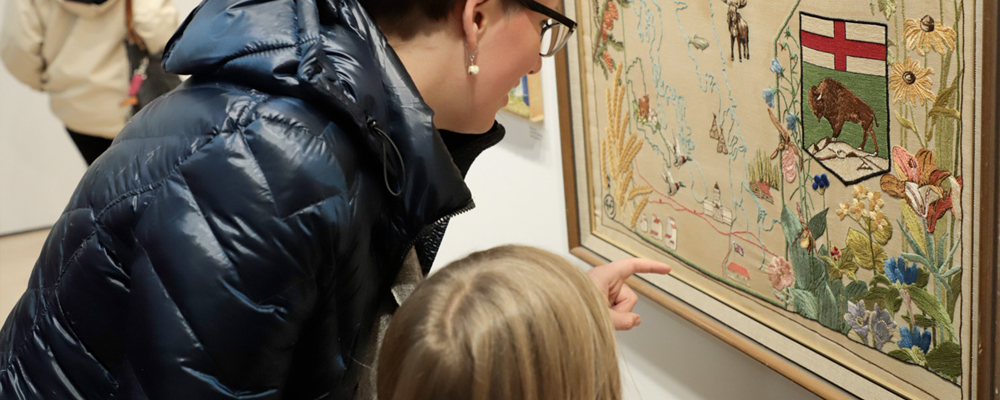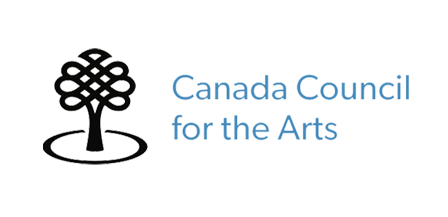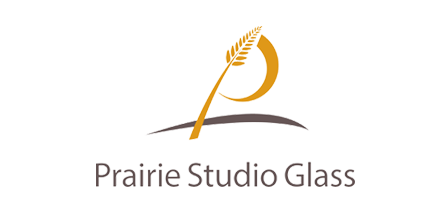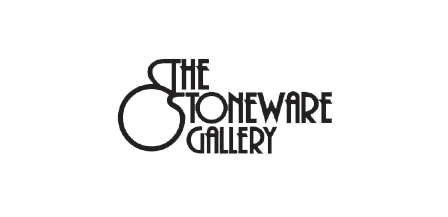About MCML
Canada’s Only Museum of Craft — Our Story
Dedicated to preserving the heritage, teaching the student, inspiring the artist, and promoting a way of life that values the handmade, the Manitoba Crafts Museum and Library has its origins in the early years of the Crafts Guild of Manitoba. The Guild was formed in 1928 as a branch of the Canadian Handicrafts Guild, and in 1933 that group established both a Permanent Collection and Library.
Over the years, volunteers worked to develop the collection, create exhibits, establish and deliver programming, and to care for the collection according to museum standards.
The Guild also established, in the early 1930s, a library of craft publications and patterns for use in workshops and by craftspeople.
The Library grew steadily over the years, and in 1948 was named the Gladys Chown Memorial Library in memory of a President of the Guild who died while in office. In the early 1990s volunteers worked to institute established library procedures and to develop the library into a more comprehensive resource.
In 1997 the Crafts Guild of Manitoba closed its doors, but the two collections were kept together and are managed by the Manitoba Crafts Museum and Library, an independent organization.
MCML’s Guiding Principles
VISION: Manitobans inspired, engaged, and connected through craft
MISSION: The mission of the Manitoba Craft Museum and Library is to:
- Collect, preserve, and hold historical and contemporary craft in trust
- Celebrate craft through exhibits, presentations, and programs
- Facilitate the exchange of ideas and build interest in and appreciation for craft
Core Values
Honouring the handmade – MCML recognizes the inherent value of creating and appreciating craft
Organizational excellence – MCML endeavours to maintain the highest standards in developing and preserving its collection and in providing services
Exchanging knowledge – MCML values learning in all its forms and strives to offer and support opportunities for growth and increased understanding of craft and its cultural roles
Fostering participation – MCML aims to ensure that its collection and programs are accessible to all
Ensuring transparency – MCML is accountable to its membership and its community and operates openly and intentionally
Commitment to diversity and inclusion – MCML strives to be inclusive and welcoming and to ensure diversity throughout the organization and its operations
Strategic Plan – Approved March 2022
- Grow membership and organizational involvement – expand and diversify the membership of MCML as well as increasing value for membership and program participation
- Review and understand current programming and membership benefits for value and consistency, including the library, workshops, online services, and membership-specific advantages
- Explore the implementation of programming that is more relevant to communities which are less represented in MCML membership
- Utilize effective communications media to reach existing and new members with information on MCML and increase exposure to craft
- Grow organizational capacity – generate sustainable income and ensure capable and supported human resources
- Review fundraising strategy and develop a plan to grow and diversify revenue sources, and grow the endowment fund to further the mission in the long term
- Attract, sustain, and support expert staff and volunteer resources
- Develop strategy on use of internal resources to ensure all aspects of the mission are supported
- Increase MCML’s inclusivity, diversity, and connectivity – make MCML more accessible by engaging with underserved communities, building and expanding partnerships, and removing barriers to participation
- Develop a diversity, equity, and inclusion approach to the work of MCML that lives up to the spirit of Reconciliation while also ensuring community representation in the collections
- Strengthen partnerships and relationships with other groups such as museums or community organizations in order to further the mission
- Engage in outreach efforts to promote the organization and build interest in the handmade
MCML’s Board of Directors and Staff
- Name Title
- Marieke Gruwel Co-President
- Judith Huebner Co-President
- Lise Brown Treasurer
- Emma Hill Kepron Secretary
- Simran Bhinder Member at Large
- Cindy Boissoneault Member at Large
- Leah Gertzen Member at Large
- Sabrina Janke Member at Large
- Jude Yallowega Member at Large
- Andrea Reichert Curator (staff)
- Caley Dyck Communication and Exhibits Assistant (staff)
- Dylan Stokes Assistant Exhibit Curator (staff)
MCML Financial Statements 2024
MCML Policy List
Accepting Gifts Policy – 2022 Final
Collections Management Policy – 2022 Final
Conservation Policy – 2022 Final
Disaster Management – 2022 Final
Exhibition Policy – 2022 Final
Human Rights Policy – 2022 Final
Public Programming Policy – 2022 Final
Social Media Policy – 2022 Final
Fiscal-Management-and-Oversight-Policy-2022-Final
The MCML Museum Collection currently comprises over 10,000 artifacts and archival materials, including both historical and contemporary pieces. Our collection includes bobbin lace, ceramics, crochet, embroidery, glass, knitting, needle lace, paper, quilts, rug hooking, sculpture, tatting, weaving, woodworking and more. The museum collection also has archival holdings of textual materials, photographs, and a slide collection.
The MCML museum collections are catalogued in an in-house database. Portions of this catalogue are available on Artefacts Canada.
Researchers may view portions of the Museum collection for research purposes. It is advisable to contact MCML staff two weeks prior to requiring access with a research request topic.
Donating to the Museum Collection
The Manitoba Crafts Museum and Library accepts donation of hand crafted items as outlined in our Collections Management Policy. MCML reserves the right to decide on each individual donation and may not approve all items offered. Individuals with items to offer for donation should contact MCML staff arrange a meeting to evaluate each item.
View selected artifacts in the MCML Collection
The Gladys Chown Memorial Library is a vital part of the Manitoba Crafts Museum and Library. It was established in the 1930s as part of the Crafts Guild of Manitoba and officially named the Gladys Chown Memorial Library in 1948. The library is a unique collection containing materials dating back as far as the late 19th century; some foreign language books; and recently published books and periodicals. A significant portion of the holdings are unique in Canada.
The library collects and preserves archival material, manuscripts, books, periodicals, photos, patterns, CDs, DVDs and any other paper or digital items relating to the history and practice of crafts. There are currently over 3,500 books, 1,500 magazines and journals, hundreds of vintage patterns, and a vertical file of more contemporary patterns, booklets and miscellaneous materials.
The library is a lending library for eligible members of MCML and a research facility for all members of the public.
The books, magazines, vertical file material and patterns are catalogued with an in-house database which is available to the public during open hours. Its holdings can also be searched online through AMICUS, a free national catalogue that shows the published materials held at Library and Archives Canada (LAC) as well as in over 1300 libraries across Canada.
Search the Gladys Chown Memorial Library Collection
Borrowing Privileges
MCML members may borrow up to fifteen (15) books for three (3) week borrowing periods.
Donating to the Library
MCML accepts donations of books to the MCML library holdings. Only books related directly or indirectly to craft are accepted. MCML
only rarely accepts donations of magazines. Please call or email MCML prior to dropping off any library items.Books donated to the MCML library might be:
- Retained by the library
- Sold to raise money for the MCML (in the case of duplicates or item not desired by the MCML library)
- Donated to a different library/charity
- Discarded (in the case of books not in good condition or not saleable)
The Manitoba Crafts Museum and Library offers a series of fun, hands-on, craft-based school programs with links to the Manitoba curriculum for grades 1-11. Students are able to interactively explore craft processes and histories using objects from the museum’s collection. Programs can be delivered on-site at the museum or in-classroom.
Fees: $5 per student for a 2 hour presentation (craft activity included)
When you book a second class for the same day, receive 20% off the second class!
To book: send us an email at mcml@c2centreforcraft.ca or call 204-615-3951.
School Programs at Home
Due to the C2 Centre for Craft being closed during the COVID-19 pandemic and to assist teachers while they are teaching online, MCML is publishing an adapted online version of the Manitoba Symbols program. Provided in this package is an outline of the presentation, images of the featured artifacts, and activities for various skill levels.
Manitoba Symbols – Teacher Resource for online teaching
Programs offered:
Junior Curators (Grades 2-6, 8, and 11)
Have you ever wondered what goes on behind the scenes at a museum? The Junior Curators program provides students with the opportunity to explore various aspects of Manitoba’s material heritage through fun hands-on activities while also engaging them in the basics of museum practice. This program has four presentation topics to choose from: Life on a Quarter Section, Natural Inspirations, Fun with Textiles, and Indigenous Textiles. Each presentation topic features a series of unique artifacts from the museum’s collection which students will learn how to handle, care for, and catalogue.
Junior Curators Information Sheet
Presentation Topics:
- Life on a Quarter Section explores what life was like on a homestead in nineteenth century Manitoba. Students will gain a greater understanding of life on a homestead, the crafts associated with homesteads, immigration, and the Dominion Land Acts.
- Natural Inspirations dives into craft practices that are inspired by nature as well as a variety of craft practices that use natural materials. This topic also addresses themes of sustainability in craft, such as the reuse of materials and how craft can be beneficial for the environment.
- Fun with Textiles investigates the history of textiles, such as wool, linen, and silk, the ancient societies that developed these textiles (Mesopotamia, Egypt, China), and how they are produced and used today.
- Indigenous Textiles looks at the histories and practices of traditional Indigenous craft such as hide preparation, beading, quillwork, and sewing from a variety of Indigenous groups, mainly from Manitoba.
Manitoba Symbols (Grades 1-6 and 10-11)
Using one-of-a-kind artifacts from MCML’s collection students will learn about crafted symbols of Manitoba and the people who made them. This program examines the Manitoba Sampler, the Manitoba Tartan, and the Metis Sash, all of which have unique histories. From natural history to industry, the Manitoba Sampler showcases the symbols we use to represent the province of Manitoba. The Manitoba Tartan harkens back to the Scottish settlers who founded the Red River Settlement and their impact on the province. We will also explore the rich Metis culture that grew alongside the province with the help of the Metis Sash. With the help of these artifacts students will explore themes of symbolism, identity, and their relation to craft.
Manitoba Symbols Information Sheet
Botany and Biology (Grades 1 & 3, and 9-10)
The Botany and Biology program allows your class to explore the science behind the organic materials used in craft! Through various hands-on activities and experiments, you may discover how plants are turned into fabric, how to make dyes from organic matter, or how to tell the difference between natural and synthetic fibres.
Botany and Biology Information Sheet
Presentation Topics:
- Organic Observations (Grades 1 & 3) allows students to explore the ways in which flora and fauna are essential in certain craft techniques. Presented with both plant and animal materials in their organic and crafted forms, students will come to understand how organic materials can be manipulated into craft by changing their texture, colour, and shape.
- The Art of Organic Dye (Grades 1 & 3) allows students to observe the process of textile dyeing using natural materials like onion skins, blueberries, or turmeric. Students will gain an understanding of the types of materials used for natural dyes, how natural dyes are created, and how they work. At the end of this program your class will have its very own sample of fabric dyed with natural materials!
- Natural and Synthetic Fibres (Grades 9-10) gives students the opportunity to critically examine different textile fibres provided by the Manitoba Crafts Museum and Library. Natural or synthetic fibres will be identified through the examinations of the physical properties of the fibres, their burning qualities, and their reactions to dyes. A brief history of the uses and production of textiles will also be discussed to develop a nuanced understanding of how humans use and manipulate raw materials.












